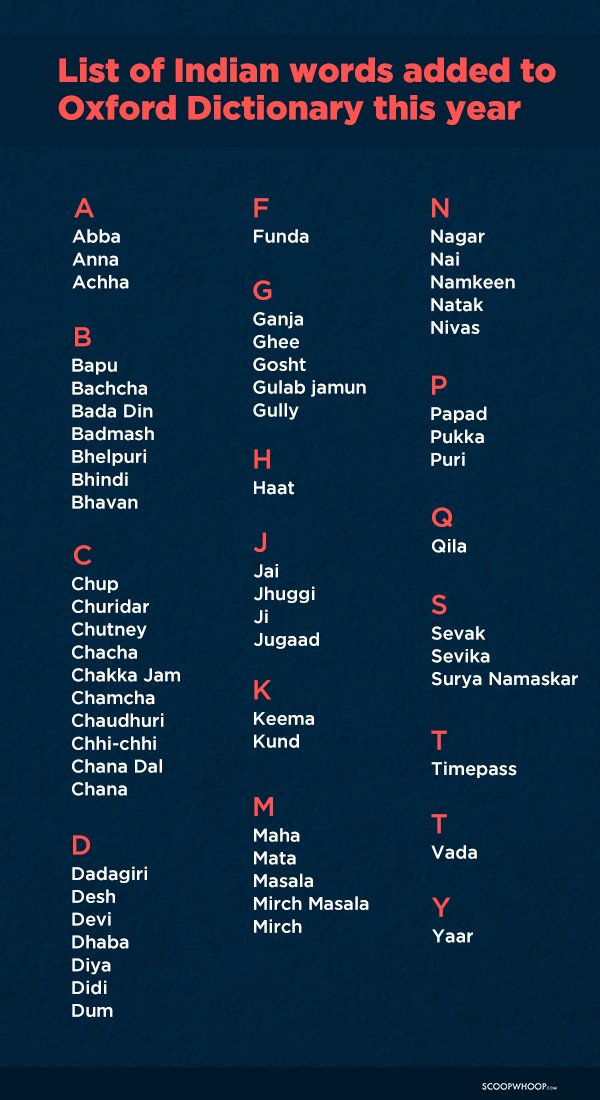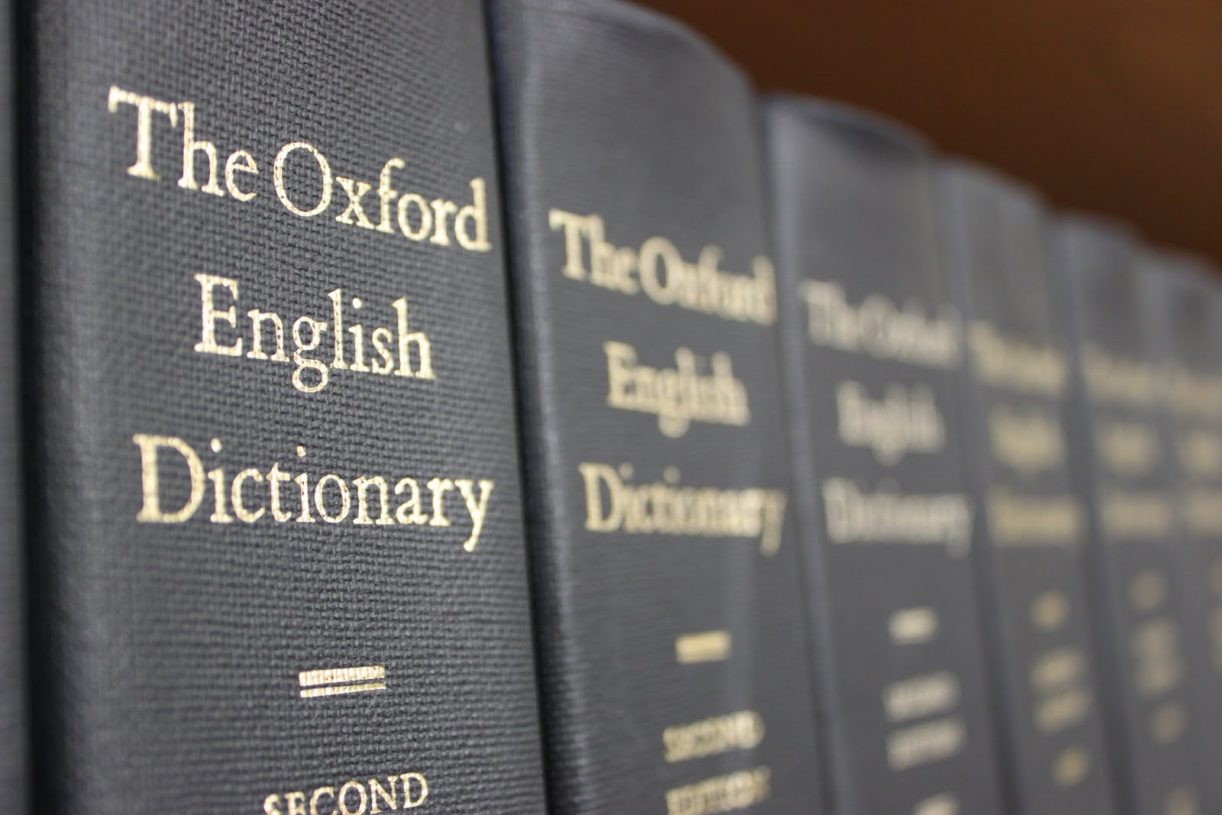Words such as ‘gulab jamun’, ‘vada’ and ‘keema’, which are part of the staple diet in many parts of India can now be found in the Oxford English Dictionary (OED).
Every year, the Oxford University Press (OUP), a department of the University of Oxford in England, adds/updates the Oxford English Dictionary with new English words and phrases from around the world. The dictionary is updated four times a year in March, June, September, and December.
The English language has played a number of important roles in shaping the Indian society. Since arriving over 400 years ago as a foreign language, to becoming one of the official languages of Independent India, English has enhanced the social fabric in India, by bridging the communication gap in one of the world’s most linguistically diverse nations.
Over 400 years of history has left a distinct mark on the English language, as it is spoken in India, which is evident from the fact that over 900 words from various Indian languages have found their place in the much-acclaimed Oxford English Dictionary over the years. In its latest update, seventy words have been added from Hindi, Gujarati, Marathi, Tamil, Urdu and Telugu languages.
Commonly known as ‘Indian English‘, it is spoken all across India, alternating between the English language and locally spoken words and phrases. For example: “My cousin had a bada (big) wedding bash”, “That was so funny! Accha (OK, Alright), let me tell you a joke now!”
The seventy words newly added to the Oxford English Dictionary reflect not just on the history of this country, but also the many and diverse cultural and linguistic influences which have shaped and changed the English language in India.
It is also important to note that the newly added words in this update also show that contact between English and Indian languages does not only occur within India. Words such as bada din, chacha, chhi-chhi, gulab jamun, and keema also have widespread currency in Bangladesh, Pakistan, Nepal and other English-speaking nations in the Indian subcontinent, and have therefore been labeled in their OED entries as South Asian.
Many of the words describe food and relationships, such as ‘anna’ (elder brother), ‘abba’ (father), ‘gulab jamun’, ’mirch masala’, ‘keema’, ‘funda’ and ‘chamcha’.
Oftenly used terms like ‘timepass’, ‘natak’ and ‘jugaad’ also have their meanings in the dictionary now.
Here’s a list of 59 such words Scoopwhoop pulled out from all the words that made it to the Oxford English Dictionary.

Andrie Steliou
Latest posts by Andrie Steliou (see all)
- 8 Ways to Help Keep Your Child Focused and Engaged in Online Learning - October 19, 2022
- How to Improve Social Intelligence Skills? - May 10, 2022
- How to Improve Organizational Skills at Workplace? - May 6, 2022

